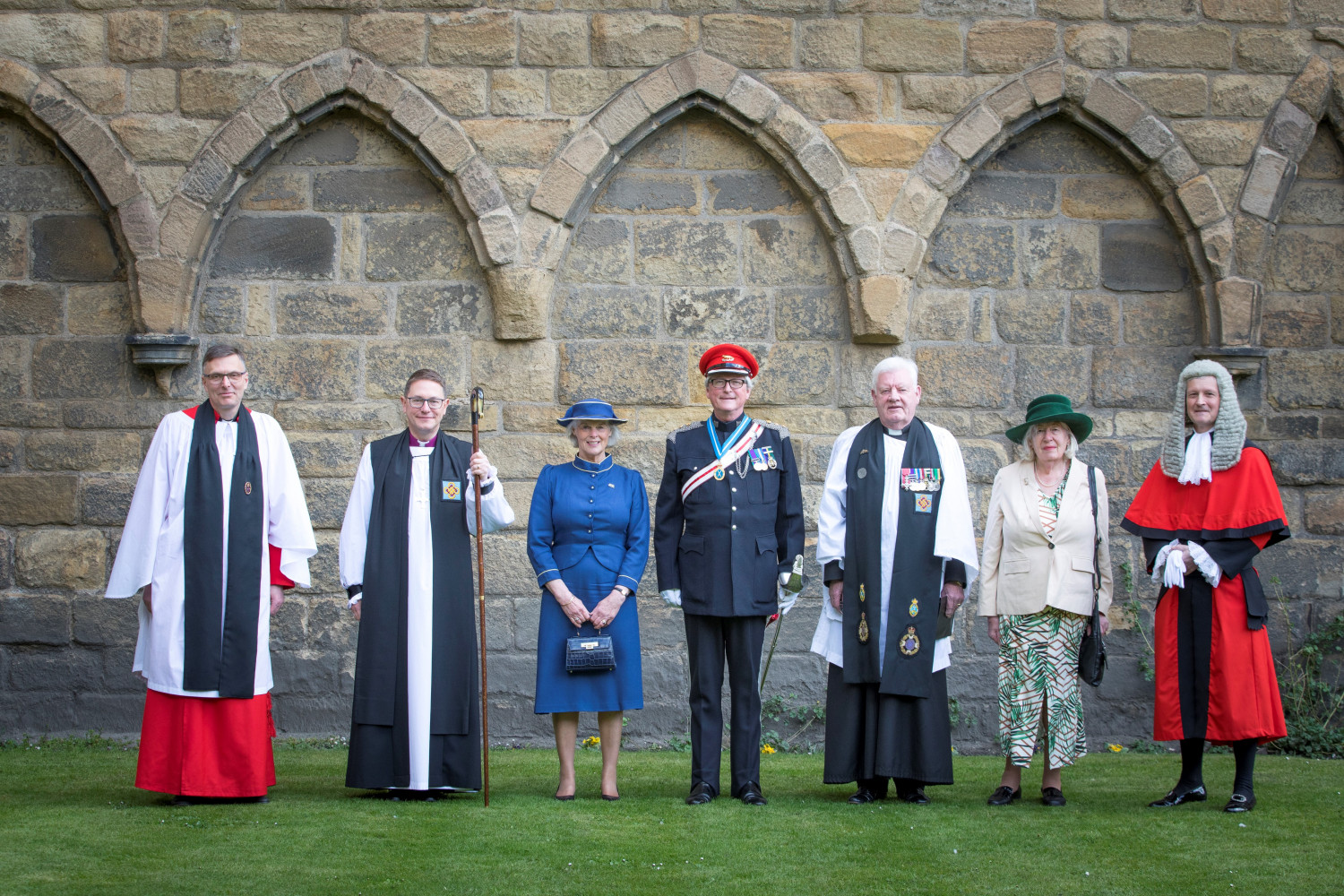
(Left to right) Canon David Glover, Rector of Hexham Abbey; Bishop Mark; Camilla Royds; Colonel James Royds; Canon Alan Hughes; Susan Hughes; and His Honour Judge Paul Sloan. Photo: Verity Johnson
Two days after preaching at a service to honour the NHS organised and attended by The Duchess of Northumberland in Hexham Abbey, Bishop Mark returned to the abbey to attend the installation of the new High Sheriff of Northumberland, Colonel James Royds and Canon Alan Hughes as his Chaplain.
The new High Sheriff of Northumberland, Colonel James Royds, was installed in an ancient ceremony at Hexham Abbey on Saturday 9 April.
After conducting the installation ceremony, Senior High Court Judge Paul Sloan explained the history of the role of High Sheriff. “It is a role”, he said, “that has existed for over a 1000 years, and is the oldest continuous Crown appointment” in the land.
When the role of sheriff or ‘shire-reeve’ was first conceived in Anglo Saxon England, “there were no Judges, no police officers, no Inland Revenue, no customs and excise duties. A sheriff – the Kings Reeve – performed all these duties and more. He could raise an army, collect taxes and had very considerable powers”. Sheriffs even led contingents at the Battle of Hastings in 1066! Such was the power of the sheriff that when Magna Carta was first published in 1215, during the reign of King John, 27 of its 63 clauses related to the role of the sheriff.
Today the role is very different and has adapted as the history of England has evolved. It is now a ceremonial role, entirely without remuneration but not without some influence for good in the county.
A High Sheriff spends his or her year in office encouraging and taking an active interest in public service – such as the police, probation, prison, armed, ambulance and fire services.
Most importantly a High Sheriff now plays a vital role in promoting the voluntary sector with an emphasis on helping and encouraging young people in the community.
Two of the themes for James’ year in office are to raise awareness of, and help raise funds for, voluntary organisations working to combat the scourge of drug ‘county lines’ and those suffering mental health issues in rural Northumberland.